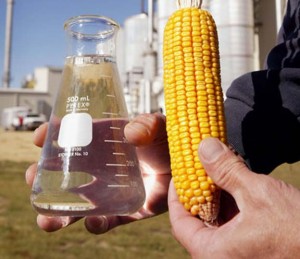The Environmental Protection Agency has declined to waive a federal mandate setting increased requirements for use of ethanol in the nation’s fuel supply despite concerns about shortages of the corn used to create the fuel in the wake of last summer’s nationwide drought.
The agency, which oversees the ethanol rules, rejected a request by eight governors and 200 members of Congress – as well as many farmers dependent upon corn feed — but opposed by corn farmers who have been seeing a spike in prices as demand for ethanol increases. A senior United Nations official also sought a waiver by the Obama Administration to prevent possible food shortages around the world.
“We recognize that this year’s drought has created hardship in some sectors of the economy, particularly for livestock producers,” said Gina McCarthy, the assistant administrator for EPA’s Office of Air and Radiation. “But our extensive analysis makes clear that congressional requirements for a waiver have not been met and that waiving the (ethanol rules) will have little, if any, impact.”
Ethanol has become a topic of significant debate in recent years, proponents insisting the renewable, grain-based alcohol can help the U.S. reduce its dependence upon foreign oil. Critics, however, contend that ethanol is not the panacea billed; they argue it is costly and potentially damaging to some vehicles that use the fuel, and that it is inappropriately cutting into corn that should go into the nation’s food supply.
But, at least for now, the mandates set by the Congressionally authorized Renewable Fuel Standard will continue to be implemented. The measure, signed into law by President George W. Bush, required the use of 5 billion gallons of ethanol in 2007, a figure that will climb to 13.2 billion for all of this year, and 13.9 billion in 2013. The number is set to continue increasing until 2022, when it should reach 36 billion gallons.
However, the RFS also calls for the expanding use of alternative production methods, namely cellulosic ethanol that can be distilled using agricultural wastes, scrap paper and other non-food stocks.
Ironically, the EPA has had to struggle to meet the mandate due to low consumer demand for E85 fuel, a blend of 85% ethanol and 15% gasoline. The alcohol is most commonly used in a blend called E10, or 10% ethanol, which is sold widely at gas stations across the U.S. The EPA recently approved a 15% ethanol blend, called E15, despite widespread concerns that could damage older vehicles and gas-powered machinery such as leaf blowers and snowmobiles.
The EPA’s decision to reject the requested ethanol waiver was hailed by a number of environmental and farm groups. The American Coalition for Ethanol proclaimed, “Despite millions of dollars spent by Big Oil and Big Food to shamelessly attack American-made ethanol, it comes as no surprise EPA denied the requests to waive the RFS because the facts are on our side.”
However, representatives of Friends of the Earth derided the decision, declaring the ethanol mandate, “a broken policy,” and calling on Congress to overturn the legislation “to protect the economy and the environment from this destructive and dirty fuel.”

